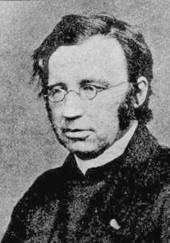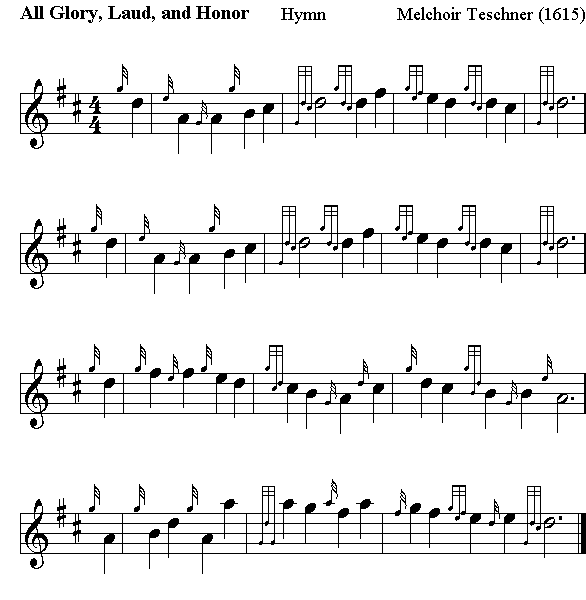 |
||||||

Best viewed in
|
All Glory, Laud, and Honor
John Mason Neale (24 January 1818 – 6 August 1866) was an Anglican priest, scholar and hymn-writer. Neale was born in London, his parents being the Revd Cornelius Neale and Susanna Neale, daughter of John Mason Good. He was educated at Sherborne School, Dorset, and Trinity College, Cambridge, where (despite being said to be the best classical scholar in his year) his lack of ability in mathematics prevented him taking an honors degree. At the age of 22 Neale was the chaplain of Downing College, Cambridge. At Cambridge he was affected by the Oxford Movement and helped to found the Cambridge Camden Society (afterwards known as the Ecclesiological Society). Though he was ordained in 1841 becoming the Vicar of Crawley the following year, but being forced to resign by 1846 due to disagreements with the diocesan bishop and his congregation, when he became warden of Sackville College, an almshouse at East Grinstead, an appointment which he held until his death. In 1854 Neale co-founded the Society of Saint Margaret, an order of women in the Church of England dedicated to nursing the sick. Many Anglicans in his day, however, were very suspicious of anything suggestive of Roman Catholicism. Only nine years earlier, John Henry Newman had encouraged Catholic practices in Anglican churches and had ended up becoming a Roman Catholic. This encouraged the suspicion that anyone such as Neale was an agent of the Vatican, assigned to destroy Anglicanism by subverting it from within. Once, Neale was attacked and mauled at a funeral of one of the Sisters. He was also the principal founder of the Anglican and Eastern Churches Association, a religious organization founded as the Anglican and Eastern Orthodox Churches Union in 1864. A result of this organization was the Hymns of the Eastern Church, edited by John Mason Neale and published in 1865. Neale was strongly high church in his sympathies, and had to endure a good deal of opposition, including a fourteen years' inhibition by his bishop. Neale translated the Eastern liturgies into English, and wrote a mystical and devotional commentary on the Psalms. However, he is best known as a hymn writer and, especially, translator, having enriched English hymnody with many ancient and mediaeval hymns translated from Latin and Greek. More than anyone else, he made English-speaking congregations aware of the centuries-old tradition of Latin, Greek, Russian, and Syrian hymns. The 1875 edition of the Hymns Ancient and Modern contains 58 of his translated hymns; The English Hymnal (1906) contains 63 of his translated hymns and six original hymns by Neale.
Lyrics
|
|||||

